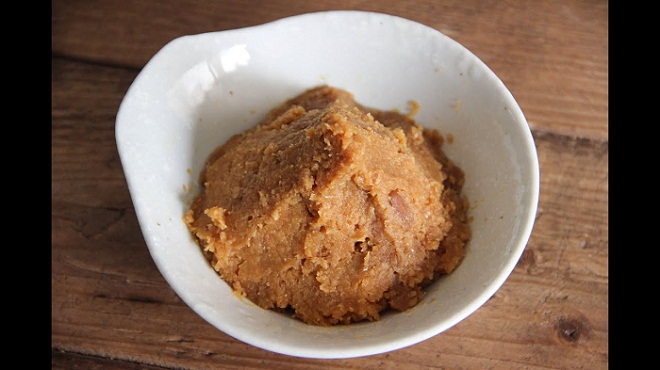Why Probiotic Yogurt is a Great Source of Probiotics
Probiotic yogurt is probably the tastiest source of probiotics and recent research suggests that it is also one of the healthiest.
Probiotics are the friendly and good bacteria which are naturally found in the gut. However, with unhealthy dietary habits and sedentary lifestyle, the balance shifts towards more harmful bacteria.
Probiotics in the form of dietary sources such as yogurt or supplements can help in maintaining the microbiome balance in your gut. It improves your digestion, nutrient absorption and even immunity. Here is everything you need to know about yogurt as an excellent source of probiotics.
How is Probiotic Yogurt Made?
Probiotic yogurt is a dairy product which is essentially made by fermenting milk with a yogurt culture. However, there are other alternatives to dairy like soy yogurt. Initial findings in many studies claim that probiotic yogurt is healthy due to its fermentation process is replete with probiotics which helps in enhancing healthy gut bacteria.
Dairy yogurt uses fresh milk or cream which is pasteurized and then fermented with live bacteria culture.
The process requires incubation at a specified temperature to encourage bacterial growth. Lactose, also called milk sugar, is fermented by this culture. The result is lactic acid which gives yogurt its distinct flavor.
Processed yogurt is thickened and soured using specific bacteria strains that promote formation of lactic acid. Lactobacillus bulgaricus and Streptococcus thermophiles are common probiotics or cultures used to make yogurt.
Additional probiotics like Lactobacillus casei, Lactobacillus acidophilus and Bifidus may also be added to probiotic yogurt. All these bacteria strains are known to promote a healthy digestive tract and boost the immune system.
It is important to understand that probiotics cannot withstand heat and high temperatures. Any yogurt which goes through a heat treatment has no active bacteria in it and should not be considered probiotic yogurt. For instance, yogurt covered raisins do not have gut benefits but this is still a better snack than having a cheese pizza and calling that a meal.
Yogurt and Probiotics
There is mounting evidence that probiotics are critical to the immune system and maintaining normal gastrointestinal function. It is common knowledge that 70 percent of the body’s immunity is in the gut. Healthy bacteria, found in healthy probiotics make up the first line of defense against infections and pathogens.
Yogurt has been long recommended by the American Gastrointestinal Association to ease diarrhea, constipation and other intestinal problems.
It is a common myth that yogurt cannot be digested by lactose intolerant population. To the contrary, a study published in the Journal of Digestive Diseases, found that the bacteria Lactobacillus acidophilus helps improve lactose digestion.
One of the best and healthiest ways of having probiotics is through probiotic yogurt. However, you need to make sure that it contains live and active cultures. Regardless of the base, a probiotics will work only if it has live colony forming units.
Probiotics are essentially living organisms that help stop harmful or undesirable bacteria from overgrowing in the gut.
They are known to fight colon disease, keep bowel movements regular, prevent constipation and help in digestion. Make sure to read the label to have an understanding of the probiotics present in the yogurt. Processing and added sugar can make yogurt unhealthy even if it contains probiotics.
Choose a Healthy Option
Make sure that you choose a product with multiple strains of bacteria and no sugar additives. Yogurt mixed with chunks of fruits or berries is a marvelous way to include prebiotics as well as probiotics in your diet.
However, the products which come with their own fruits at the bottom or mixed in have high sugar content. It is best to buy plain yogurt and mix in fresh fruits and berries.
Probiotics need nourishment the same way your body needs food. Prebiotics are plant fibers which are otherwise indigestible by the human digestive system, but make a good source of nourishment for the probiotics.
Many nutritionists refer to probiotic yogurt as a nutritional powerhouse because it contains proteins and calcium as well.
Beware of yogurts with processed sugar because these are unhealthy and assist harmful bacteria to form colonies. Stay away from artificial sweeteners and high fructose corn syrup. Sugar alcohol may keep the calories low. However, it is unhealthy and should be avoided. Steer clear of yogurt that has the words heat-treated because that is a clear sign that all bacteria have been killed.
One of the healthiest options is a low-fat or a non-fat, unflavored probiotic yogurt with calcium and vitamin D.
Types of Probiotic Yogurt
A probiotic yogurt should have at least 100 million cultures per gram at the time of manufacture to be healthy and a good source probiotics. The required cultures are significantly less for frozen yogurt at 10 million cultures per gram. Here are some of the more common types of yogurt which can help you get your daily probiotic fix.
1. Traditional Yogurt
These come in numerous flavors and are sold by almost every yogurt brand. Make sure to look at the calories, sugar, fat content and calcium levels while choosing a product. The liquid at the top of traditional yogurt is whey and should be mixed back in. It is rich in calcium and protein.
2. Greek Yogurt
The major difference in Greek and traditional yogurt is processing. Traditional yogurt is strained twice, while Greek yogurt is strained thrice for a creamier texture. The whey is removed in the straining process which is why this is a better option to add to your cooking, salads and dips.
3. Soy Yogurt
This is a good alternative to vegans and vegetarians who do not eat dairy. The amount of calories, protein and probiotics are similar to other yogurts. This provides healthy additions to the digestive tract.
4. Frozen Yogurt
Generally, people prefer frozen yogurt because they taste good and make a healthier alternative to ice creams. However, these do not contain live and active cultures. Although, the freezing process does not affect probiotics if they were already present in the yogurt. It will simply put them in a dormant state until eaten.
Final Thoughts
While yogurt is a great source of probiotics, you cannot solely rely on it for your daily probiotic intake. Yogurt should be a part of your healthy and normal diet along with other dietary sources of probiotics such as kefir, sauerkraut, and kimchi.
Consider supplements if you lead a busy lifestyle or your food choices do not include adequate natural probiotics.




